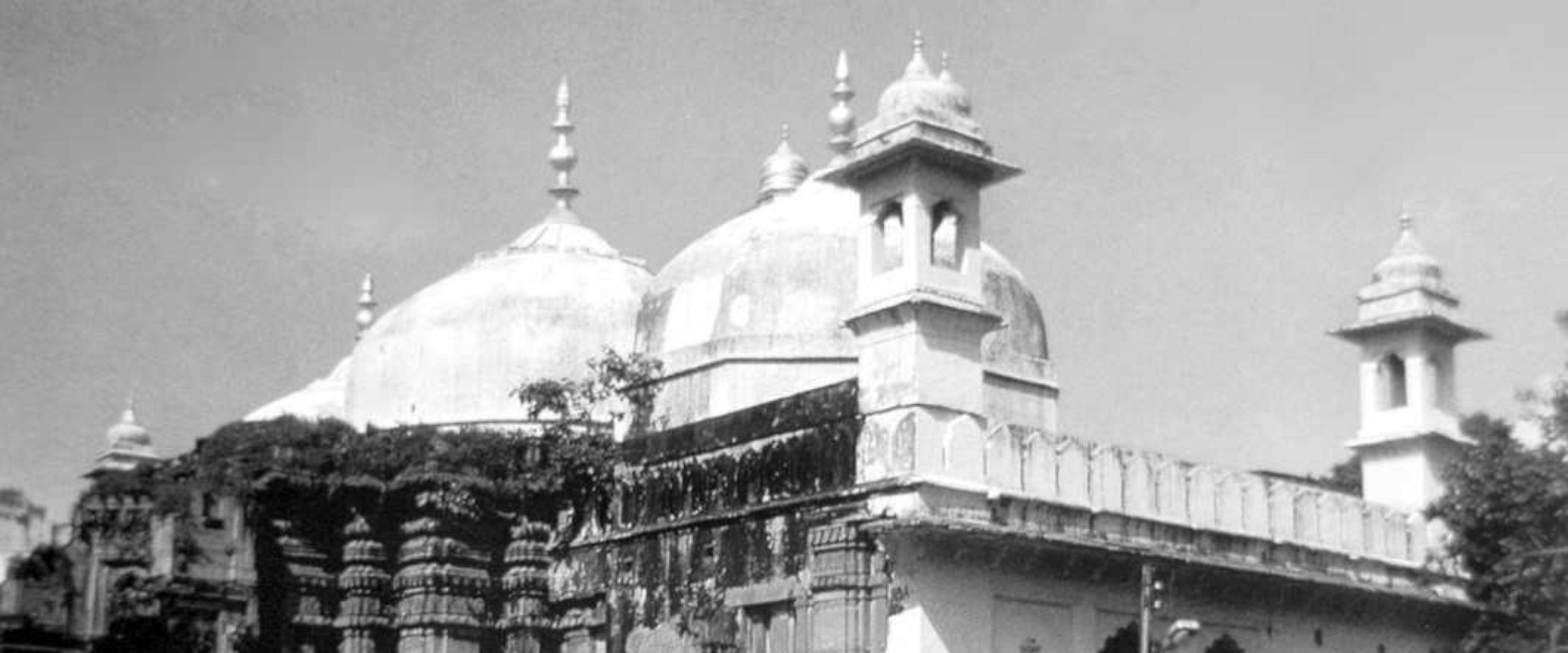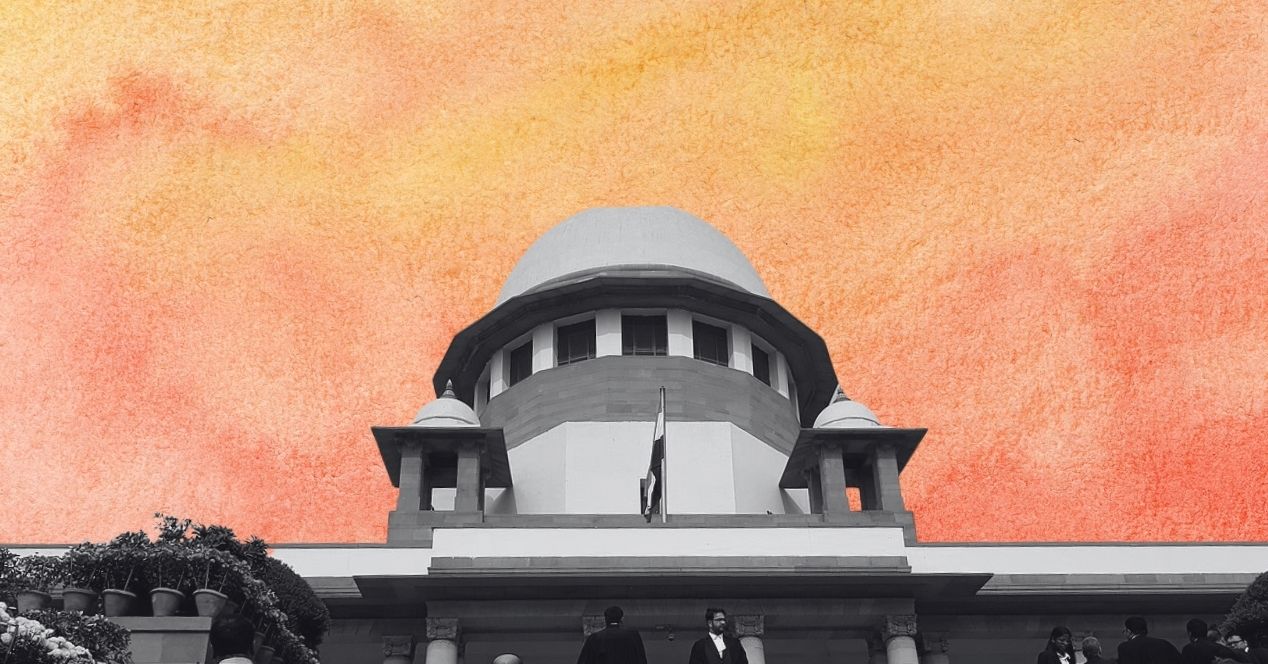Analysis
Varanasi District Dismisses Challenges to Gyanvapi Plea
The District Court’s decision to admit Hindu women’s plea to worship at mosque site appears to chip away at the Places of Worship Act

On September 12th, 2022, a Varanasi District Court rejected the objections raised against five Hindu women’s petition to offer daily prayers to Hindu deities on the disputed Gyanvapi Mosque premises. By effectively allowing parties to question the religious identity of established places of worship, the Court has thrown the Places of Worship Act, 1991 (the Act), open to reconsideration. The Act was put in place to ensure that post-Independence India would not be stuck in long-drawn religious disputes over the ‘character’ of a place of worship.
Background
In August 2021, five Hindu women filed a petition at the Varanasi Civil Court seeking permission to worship Hindu idols allegedly located inside the Gyanvapi mosque. The plea led to the formation of an Enquiry Commission which conducted a video survey inside the mosque. Based on the video survey, Hindu parties claimed that there was a ‘Shivling’ inside the mosque ‘wazukhana’. A wazukhana is a pond where Muslims wash before praying at a mosque.
The Mosque Management Committee, which opposed the petition, denied the claim. They adamantly stated that the structure was a fountain—a common installation in a Mosque wazukhana.
On May 13th, 2022, the Mosque’s Management Committee challenged the video survey before the Supreme Court, claiming that the survey would disturb communal harmony and would go against Section 4 of the Places of Worship Act, 1991. Section 4 of the Act declares that all places of worship will retain the religious character they possessed on August 15th, 1947. They also requested the Varanasi Civil Court to stop hearing the Hindu Women’s petition. Before the Supreme Court heard the matter, the Varanasi Civil Court directed the area within the mosque where the Shivlingam was allegedly found to be sealed. When the SC ultimately heard the case, it decided that the Varanasi District Court must hear the matter first.
The first question before the District Court was if the Hindu women’s plea could even be allowed. The Hindu parties put forth the ‘first in existence’ principle—the religious character of a structure that existed first is the identity to be upheld. They claim that the Shivling and other Hindu religious idols were present at the Gyanvapi premises first. It was only after the partial demolition of the temple during the reign of Mughal Emperor Aurangzeb that a mosque was built at the site. They argue that Hindu deities, along with their idols and icons, existed at the site long before the mosque was constructed.
Gyanvapi: Another Exception to the Places of Worship Act?
The Supreme Court in the Ayodhya Title Dispute held that the sole exception to the Places of Worship (Special Provisions) Act, 1991 (the Act) was the disputed Babri Masjid. The Act itself was an opportunity to ‘heal the wounds of the past’. The Places of Worship (Special Provisions) Act, 1991 (the Act), bars any plea seeking a change in the religious identity of a religious structure.
The Act states that any disputed religious site will retain the religious identity it possessed on August 15th, 1947. Any pending cases pertaining to disputed religious sites will consequently be dismissed. The District Court, however, appears to have taken a divergent stance.
The District Court, in its Order, observed that Hindus were offering prayers at the disputed site ‘incessantly since a long time till 1993’. It appears that the Court understood this to mean that the site was not solely Muslim in nature. It held that the Places of Worship Act is not applicable in the present instance. Since 1993, Hindus were permitted to worship at the site only once a year by the Uttar Pradesh government.
The Big Picture: What Lies Ahead For Disputed Religious Sites?
The purpose of the Places of Worship Act was to put to rest old ghosts emanating from religious disputes. However, the developments in the Gyanvapi dispute, from permitting the survey to present-day judicial decisions, appear to be chipping away at the law. Permitting the Gyanvapi plea points to a dangerous outcome—one where multiple exceptions to the Places of Worship Act can arise.
The Supreme Court, on July 21st 2022, left the challenges to the formation of the Enquiry Commission pending until the District Court had first decided the matter. The top Court had earlier been informed that permitting even a video survey by the Enquiry Commission was not without harm. The formation of the Commission led to the sealing of the mosque. The mosque wazukhana too was sealed after the survey was conducted. While the Places of Worship Act seeks to freeze the religious identities of structures as they were on August 15th, 1947, the Gyanvapi mosque may not continue to be protected under the Act. .
The impact of the District Court on the present-day Gyanvapi site is apparent—the Order comes as a significant victory for the Hindu side. However, the decision’s impact on the Places of Worship Act, in the long run, remains to be seen. The divergent stance of the Courts in this matter may very well pave the way for further conflicts on disputed religious sites in the future.
The Varanasi District Court will hear the matter next on September 22nd, 2022, to frame issues for consideration.



